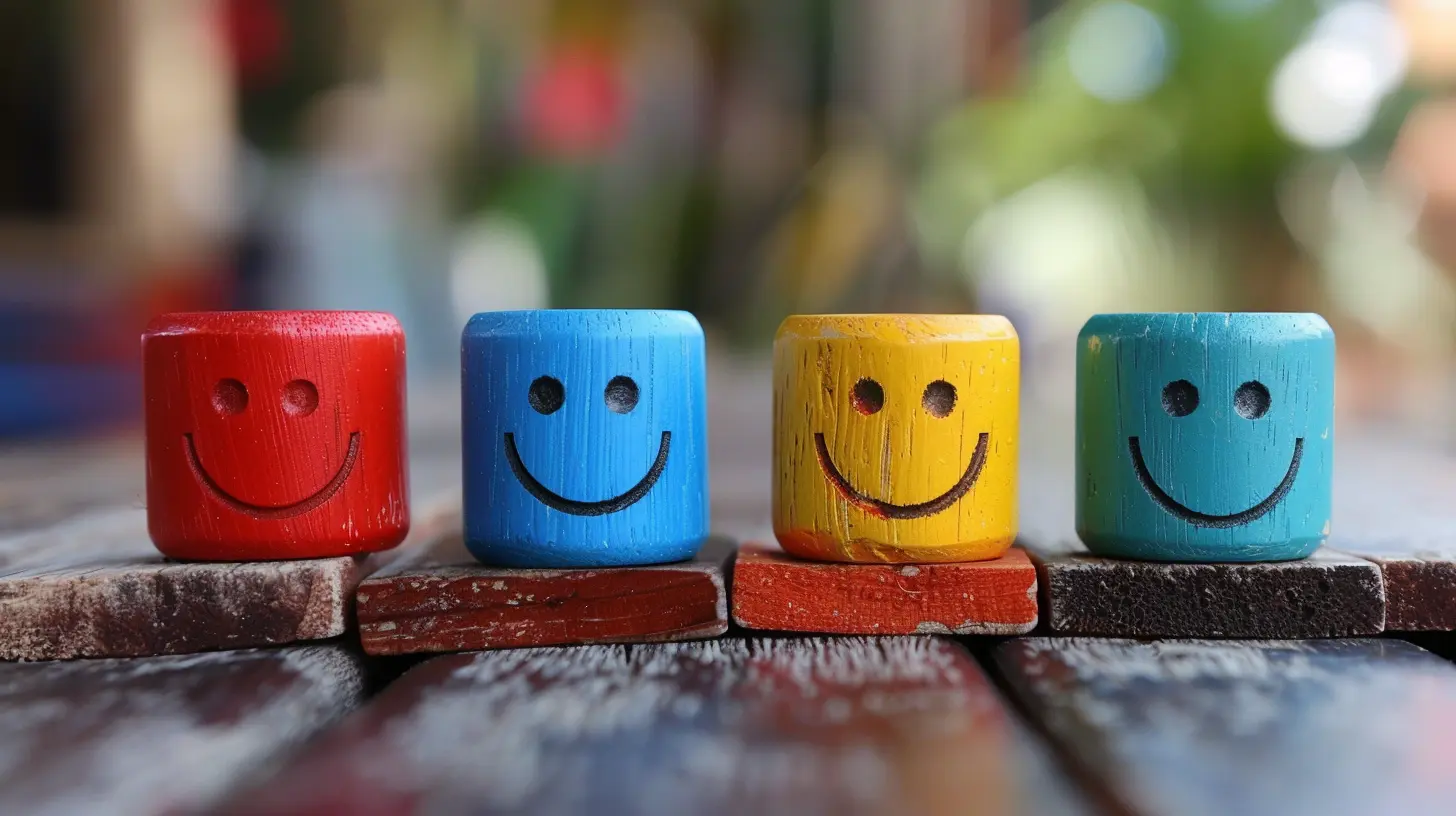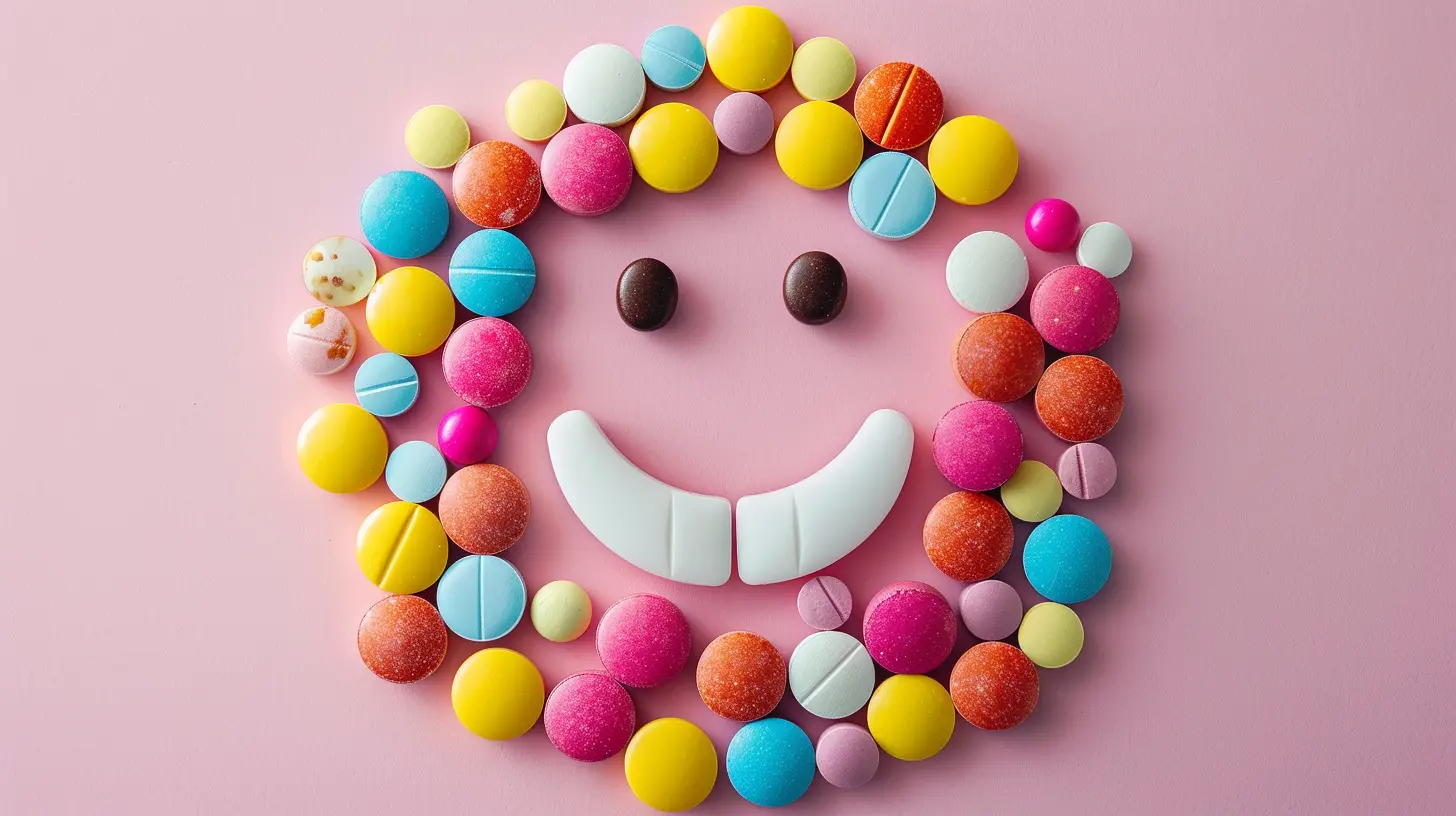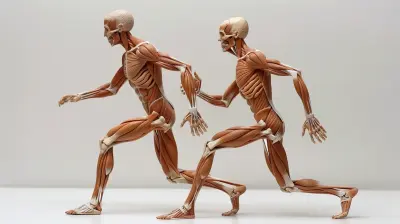The Science Behind How Hormones Affect Your Mood
1 November 2025
Ever felt like you're on an emotional rollercoaster and have no clue why? One minute you’re fine, and the next, you’re weeping over a puppy video or snapping at someone for no real reason. Don’t worry—you’re not just being dramatic. There’s actually a whole science behind it, and it’s all tied to those sneaky little chemical messengers called hormones.
In this article, we’re getting personal with your endocrine system. We’re diving deep into how hormones control your mood, explain why you feel like a ray of sunshine one day and a thunderstorm the next, and what you can do about it. So grab a coffee (or green juice, whatever you’re into), and let’s break it down.
What Exactly Are Hormones?
Let’s start with the basics. Hormones are like your body's text messages. But instead of texting your friends, they’re communicating between your organs and tissues—sending signals that help with everything from metabolism to mood.Produced by glands like the thyroid, adrenal, and pituitary (a.k.a. the control center), these chemical messengers travel through your bloodstream to tell your body what to do, when to do it, and how intensely. Pretty bossy, right?
Now, when hormones are in balance, life feels smooth. But when they’re off? That’s when things go haywire—especially emotionally.
The Key Mood-Influencing Hormones
Several hormones play puppet master with your emotions. Let’s break down the major players.1. Cortisol: The Stress Boss
Cortisol is your body’s primary stress hormone. It kicks in when you’re under pressure—like during a work presentation or when you’re stuck in traffic. In small doses, it’s actually helpful. It keeps you alert and ready to respond.But chronic stress leads to chronic cortisol. And when cortisol is constantly flooding your system, it can lead to irritability, anxiety, and even depression. Think of cortisol like caffeine: a little perks you up, too much and you're jittery, anxious, and crash hard.
2. Serotonin: The Feel-Good Fix
Serotonin is your body's natural mood stabilizer. It helps you feel calm, relaxed, and emotionally grounded. Low levels of serotonin? That’s often linked to depression and anxiety.It’s not just in your brain—about 90% of serotonin is actually made in your gut! Yep, your digestive health plays a big role in how happy (or blah) you feel.
3. Dopamine: The Reward Master
Feel amazing after smashing a goal or eating your favorite dessert? That’s dopamine. It's the hormone linked to pleasure, motivation, and reward. It’s the "heck yeah, I did that!" hormone that keeps you chasing goals.Low dopamine, though, can make life feel blah. Tasks feel like a chore, your drive tanks, and even things that used to excite you feel...meh.
4. Estrogen and Progesterone: The Dynamic Duo
These two are mainly known for their role in female reproductive health, but they’re also mood influencers. Estrogen tends to boost serotonin, so when estrogen drops (like before your period or during menopause), so does your mood.Progesterone, on the other hand, has a calming effect. But when levels swing wildly—as they often do—it can lead to mood instability, irritability, or even feelings of anxiety.
5. Testosterone: Not Just for Men
Testosterone impacts mood in all genders. It supports confidence, energy, and a sense of well-being. Low testosterone can result in fatigue, low motivation, and yes—mood swings.
Why Hormonal Imbalance Wreaks Emotional Havoc
Your hormones don’t operate in isolation. They’re part of a complex web—like a group project where everyone needs to pull their weight. If one slacks off or overdoes it, the whole system gets thrown out of whack.When your hormone levels are misaligned—be it from poor diet, chronic stress, poor sleep, illness, or even environmental toxins—it can seriously mess with your mental game. You might find yourself feeling anxious for no clear reason, snapping at loved ones, or stuck in a fog of sadness.
Ever heard of PMS or PMDD? That’s a prime example of how hormone fluctuations can mess with your mood. Or consider postpartum depression—often linked to the sudden drop in estrogen and progesterone after childbirth.
How Life Stages Influence Hormonal Mood Swings
Certain life phases come with extra hormonal turbulence. Let’s take a quick look:Puberty
Ah, the teenage years. Hormones flood the system, and suddenly everything feels intense: crushes, school stress, identity issues. It's not just drama—it’s biology.Menstrual Cycle
For many women, mood shifts are part of the monthly package deal. Estrogen and progesterone levels rise and fall throughout the cycle, and that affects serotonin and dopamine levels too. Result? Mood dips, irritability, anxiety, or crying over commercials.Pregnancy & Postpartum
During pregnancy, hormone levels skyrocket. After childbirth? They crash. That’s why some women feel euphoric during pregnancy and completely overwhelmed after giving birth.Menopause
As estrogen and progesterone decline, many women experience mood swings, anxiety, and even depression. It’s not just “getting older”—it’s a biological shift that affects brain chemistry.Andropause (Yes, it’s a thing!)
Men also experience a gradual dip in testosterone as they age. This can lead to fatigue, irritability, and mood changes that mimic depression.The Gut-Brain-Hormone Connection
Here’s something that might blow your mind: your gut is basically your second brain. With its own nervous system and a massive amount of serotonin production, your digestive health directly impacts your mood.When your gut bacteria are out of balance (aka dysbiosis), it can mess with hormone production and cause inflammation that affects the brain. That’s why a junk food binge may leave you feeling sluggish, cranky, or emotionally off.
Probiotics, fiber-rich foods, and staying hydrated can help keep your gut—and by extension, your mood—happy.
Lifestyle Habits That Balance Hormones and Boost Mood
Okay, now for the good stuff. You’re not at the mercy of your hormones. Here’s what you can do to help your body keep them in check.1. Get Consistent Sleep
Sleep is like a hormonal reset button. Poor sleep raises cortisol, lowers serotonin, and throws everything else out of alignment. Aim for 7–9 hours a night. And yes, being glued to your phone before bed messes with this.2. Eat Hormone-Friendly Foods
Load up on foods rich in omega-3s (like salmon and flaxseeds), magnesium (leafy greens and nuts), and fiber (hello, veggies and whole grains). Avoid too much sugar, processed junk, and alcohol—they’re notorious hormone disrupters.3. Move Your Body
Exercise helps balance insulin, boosts endorphins (your natural mood elevators), and improves sleep. You don’t need to run marathons—just 30 minutes of walking, dancing, or yoga can make a huge difference.4. Manage Stress Like a Pro
Easier said than done, right? But chronic stress is a hormone killer. Try deep breathing, meditation, journaling, or even a good laugh—it all helps regulate cortisol.5. Talk About It
If you're feeling emotionally off and can’t pinpoint why, don’t suffer in silence. Talk to a doctor or therapist. Hormonal imbalances can often be tested and treated. It’s not in your head—it’s in your blood.Supplements That Support Hormonal Balance
While food and lifestyle are the foundation, sometimes your body needs a little extra help. Talk to a healthcare provider before trying anything new, but here are some popular options:- Ashwagandha – Supports cortisol management
- Magnesium – Helps with relaxation and serotonin production
- Vitamin D – Linked to mood regulation
- Omega-3s – Anti-inflammatory and supports brain function
- Chasteberry – Commonly used for PMS and hormone balance in women
Again, not a one-size-fits-all thing—your body’s needs are unique.
When Should You Seek Help?
If mood swings, anxiety, or depression are messing with your quality of life, it’s time to call in the pros. A doctor can run hormone tests and recommend treatment options, from lifestyle changes to hormone therapy if needed.Don’t let stigma stop you. Emotional health is just as important as physical health—and often, the two are deeply connected.
Final Thoughts: You’re Not Alone
Hormones might be invisible, but their power is undeniable. They shape how we feel, think, and experience the world. While you can't totally control them, you can absolutely work with your body to keep things balanced.So the next time you're feeling off, cut yourself some slack. It might just be your body's way of saying, “Hey, something’s up.” Tune in, take care, and most importantly—be kind to yourself. Hormones may have the steering wheel sometimes, but you’re still the driver.
all images in this post were generated using AI tools
Category:
Healthy HormonesAuthor:

Madeline Howard
Discussion
rate this article
1 comments
Peregrine McBride
Fascinating topic! How do different hormones specifically influence our emotions?
November 4, 2025 at 4:19 AM

Madeline Howard
Thank you! Hormones like cortisol, serotonin, and dopamine play key roles in regulating emotions. For instance, cortisol influences stress response, while serotonin and dopamine are linked to feelings of happiness and reward. Their balance is crucial for mood stability.


